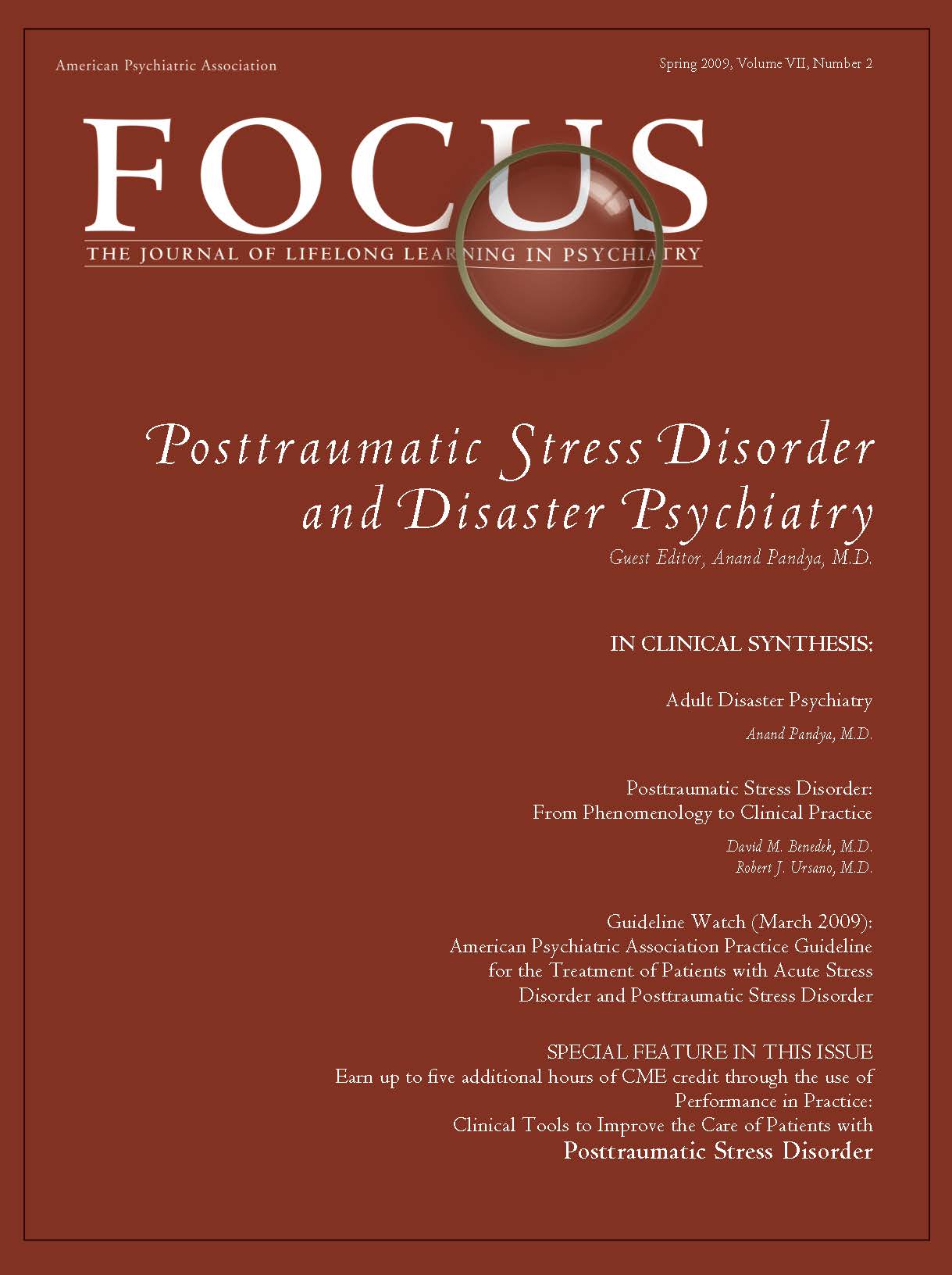Ask the Expert: Acute Management of Sexual Assault
As the psychiatric consultant to a hospital emergency room, I am asked to see a 19-year-old college student named Meghan, who came in after she was sexually assaulted. What are my priorities in the first interview and beyond?
In the ER, Meghan appears as though in a daze, rocking slowly back and forth. Unable to lift her head, she tells you that she had been drinking and flirting with a guy she liked from her college dormitory the night before. At 2 a.m., they ended up alone in his room. He grabbed her, told her that she had been “asking for it all night,” and threatened to hit her if she did not have sex with him. She is crying and says: “It's all my fault.”
Your priorities are to ensure Meghan's safety, facilitate appropriate medical care, educate her about sexual assault and its early psychological sequelae, and arrange for follow-up. Meghan may not be able to assimilate any information until a sense of psychological safety is established. Her dazed look and body rocking may represent dissociative phenomena not uncommon after sexual assault. “Grounding strategies” can be used such as asking her to touch the table or to focus her gaze on something in the room. A short-acting benzodiazepine may be indicated if the grounding does not calm her sufficiently.
The psychiatrist should empathize with her; it is often useful to say: 1) you are sorry to hear what has happened. 2) She did not deserve it regardless of whether she had been drinking. 3) A sexual assault can occur even though one knows the perpetrator, sexual assault is illegal. Explain that her reaction is reasonable and that it is normal to need support. Reinforce that she is in a safe place and that the assault is over. Provide information; it may be helpful to offer to take notes for her, as it may be difficult for her to remember everything. Social support improves prognosis after sexual assault, so it is important to ask Meghan whether there are relatives or friends she could call and whether she has a safe place to go after the emergency room. Enlist the patient in deciding who to call for support because negative social support after an assault may predispose to worse mental health outcomes (1). Also, given the high frequency of known assailants, it is vital to ensure that the perpetrator is not inadvertently enlisted.
Explain that the emergency room physician will want to perform a physical examination, including a pelvic examination, to assess her injuries and laboratory testing for sexually transmitted infections. Explaining all procedures and getting consent is vital. Support and explanation at every point in the examination will help her return to a sense of control and safety. The physical examination can even trigger a reexperiencing of the event so the patient should be reassured that this can be a normal response. This explanation serves both to normalize such a reaction and to return a sense of control and safety. Ask Meghan about her initial thoughts about reporting the assault, as this may be relevant to the collection of the rape kit. However, the decision to report is often agonizing and does not need to be made while she is in acute crisis.
Explain to the patient and those who join her for support, that initial psychological symptoms after an assault may include insomnia, irritability, hypervigilance, and reexperiencing. She should receive further mental health treatment if these symptoms persist. Including those who join her for support in the discussion may also allow them to help the patient with self-blame.
Set up a follow-up appointment for Meghan to see you the next day to review what you have discussed and to monitor her initial reaction to the assault. Initial numbing and dissociative responses may represent acute stress disorder as defined in the DSM-IV-TR and can predispose to future difficulties including somatization disorders, depression, panic disorder, and posttraumatic stress disorder. Themes of guilt, shame, and self-blame are common and up to 50% of victims of sexual assault may have suicidal ideation over time (2). The principles of treatment for patients who have experienced sexual assault are consistent with general psychiatric management. However, providers should also consider symptomatology and behaviors of patients who have experienced sexual assault within the context of the impact of the trauma on that individual's sense of safety in interpersonal relationships.
1 American Psychiatric Association: Acute stress disorder and posttraumatic stress disorder: treatment recommendations. Am J Psychiatry 2004; 161: s4– s31.Google Scholar
2 Vigod SN, Stewart DE: Psychiatric management of victims of physical and sexual abuse and rape, in Psychiatry, 3rd ed, vol 2. Edited by Tasman A, Kay J, Lieberman J, First MB, Maj M (eds). Chichester, UK, John Wiley & Sons, 2008, pp 2576– 2592.Crossref, Google Scholar



